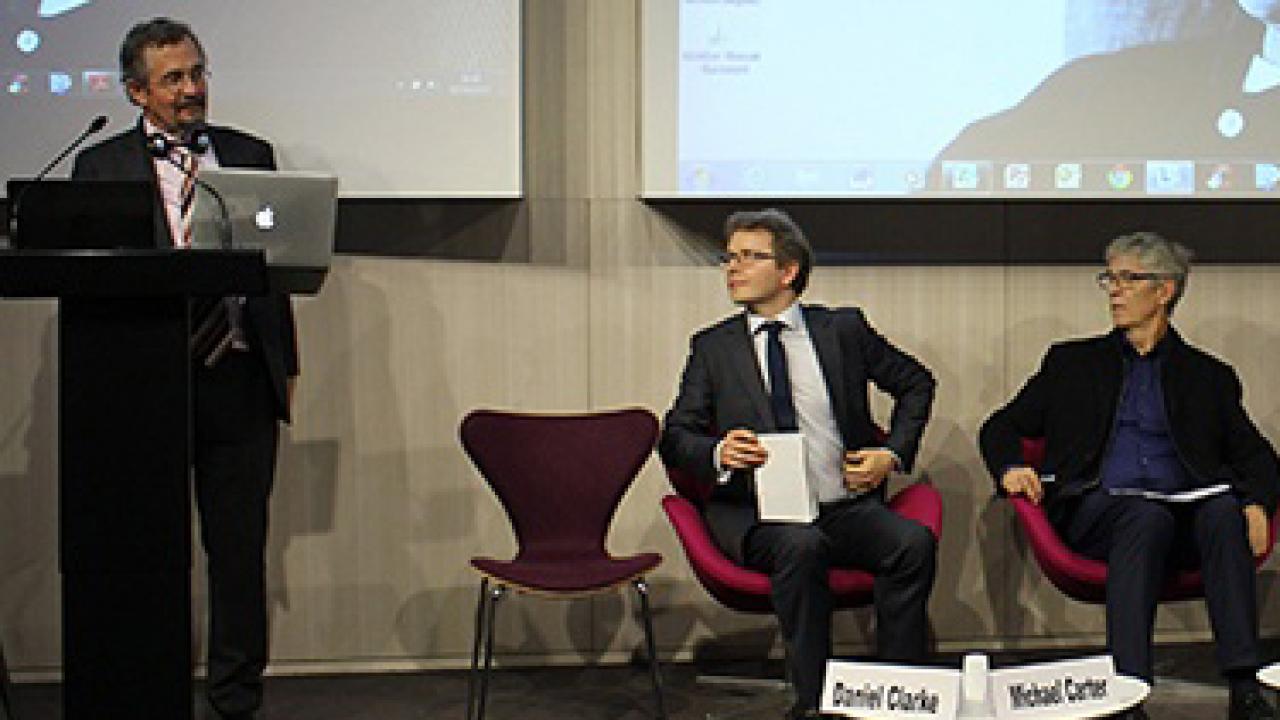
Paris Event Charts the Future of Insurance for Mitigating Climate Risks
As climate-related disasters are expected to grow in size and frequency with climate change, insurance may prove critical to relief and recovery, especially for small-scale farmers in developing countries.
AMA Innovation Lab director Michael Carter presented on the opportunities and risks of index insurance at an October 2, 2017 workshop in Paris held by FERDI and the French Development Agency (AFD). The event, “Catastrophic and index insurance in developing countries,” convened researchers, development practitioners and insurance professionals to stimulate dialogues toward better index-based and disaster risk insurance for development.
“In some areas in the world, a severe drought event can take away 50 to 60 percent of a family’s wealth,” said Carter. “Some people lose absolutely everything in the space of a couple of months.”
Index-based insurance holds tremendous promise for small-scale agriculturalists who are particularly vulnerable to climate-related disasters like drought and flood. Conventional insurance doesn’t work in development, primarily because of the high costs of verifying losses.
Index insurance avoids these costs by basing payouts an estimate of losses based on an index, such as rainfall totals, vegetation growth, or regional crop yields, rather than actual loss. In rural developing countries, this lowers costs for private insurers and reduces premiums for farmers.
In his presentation, Carter presented evidence showing that index-based insurance improves productivity and nutrition, as well as how these products can and should be scaled. However, he also warned that right now some index insurance products on the market are far from perfect.
For many index insurance contracts, premiums are high for policies that vary widely in terms of quality. Policies are not guaranteed to provide payouts and explaining how they work to buyers remains a challenge.
Given these challenges, Carter said that Safe Minimum Standards (SMS) to be enforced by regulatory agencies or insurance groups could ensure that farmers are not worse off for having paid for insurance. These currently do not exist anywhere.
“Countries throughout the world have certification standards for maize and other seeds,” said Carter. “There are no equivalent quality standards for index insurance, even though index insurance is a more complex product.”
The Paris event was moderated by AMA Innovation Lab principal investigators Alain de Janvry and Elisabeth Sadoulet. Both were co-authors with Carter on a recent policy brief outlining the current state of index insurance and its future for development.
Read more about the event and view presentation slides at the FERDI website.
